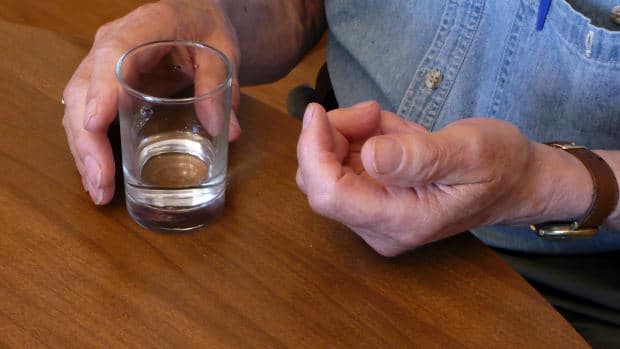
Thinking of taking glucosamine for your gout? Here you’ll discover the pro’s and con’s of using glucosamine supplements in the treatment of gout.
Glucosamine and Gout
Let’s look at glucosamine supplements and whether or not they can relieve the pain and inflammation of gout. First…
What is Glucosamine?
It’s a naturally occurring chemical compound in the body and integral to cartilage building; the connective tissue that cushions our joints.
Glucosamine is a modified sugar, synthesized by the body’s cells, which regulates the balance of tissues within the cartilage. It’s also found in animal bones and the shells of shellfish.
Glucosamine Supplements
These are generally made from the outer shells of shrimp, lobsters, and crabs. But other forms are readily available for those with an allergy to shellfish.
They are the second most popular dietary supplement in the USA, after fish oil; most often used by those suffering with osteoarthritis, inflammatory bowel disease, and ulcerative colitis.
Glucosamine sulfate is the most popular active ingredient and sometimes chondroitin sulfate, shark cartilage, or methylsulfonylmethane (MSM) is included for added ‘potency.’
Glucosamine Supplements for Arthritis
Glucosamine is a very common dietary supplement for arthritis, more especially osteoarthritis, to help manage joint pain through the reduction of inflammation. And many sufferers report that it does ease their pain somewhat.
But why supplements?
First, for someone who has particular health issues that may be helped by glucosamine, they can’t get sufficient through diet. So supplements are the only way to potentially get more into their system.
The idea being that as naturally occurring glucosamine in the body helps to build, maintain, and repair cartilage, taking it in supplement form should have similar benefits.
This is backed by some studies, but not all. There are even some conflicting outcomes within individual studies.
But what most research seems to indicate is that glucosamine supplements ‘may’ help with moderate to severe joint pain.
Similarly, there’s no conclusive proof that glucosamine supplements can help to repair or build new cartilage, or even prevent damage to cartilage.
So the jury’s still out on just how effective it is for arthritis.
Glucosamine Supplements for Gout
The first thing is that since glucosamine is made from the outer shells of shellfish and not the meat (or it can be made synthetically) there are no purines, so taking it shouldn’t raise uric acid levels or aggravate gout.
But does glucosamine actually help to reduce inflammation and relieve the pain of a gout attack?
Unfortunately there are no clinical studies into glucosamine and gout specifically; at least none that I could find.
So all we have to go on are the studies into the effect between glucosamine and arthritis; bearing in mind that gout is just another form of arthritis.
And, as you saw above, there just isn’t the hard clinical evidence that glucosamine truly helps to reduce the painful symptoms of gout. Nor prevent the degradation of joints arising from chronic gout.
At best, all we can say is that glucosamine supplements ‘may’ help to reduce the pain and inflammation of gout.
Is Glucosamine Safe?
Apart from occasional reports of mild gastrointestinal discomfort, there isn’t any evidence of toxicity or serious side effects with using glucosamine. But, as with taking any medicine, drug-based or not, there are some issues to be aware of…
Some preliminary animal studies have linked the use of glucosamine to raised blood sugar and insulin levels.
But others don’t show that.
Once again, there’s no hard clinical evidence either way.
So, anybody with any of the following should seek advice from their primary healthcare provider / doctor before taking these supplements:
- shellfish allergy
- asthma
- pregnancy or breastfeeding
- diabetes
- stomach ulcers
- active bleeding disorders
- taking anticoagulant medications
- high blood pressure
- high cholesterol
And glucosamine has to be stopped at least 14 days prior to any surgical or dental or surgical procedure.
The safest course, if in doubt, is to avoid glucosamine completely.



